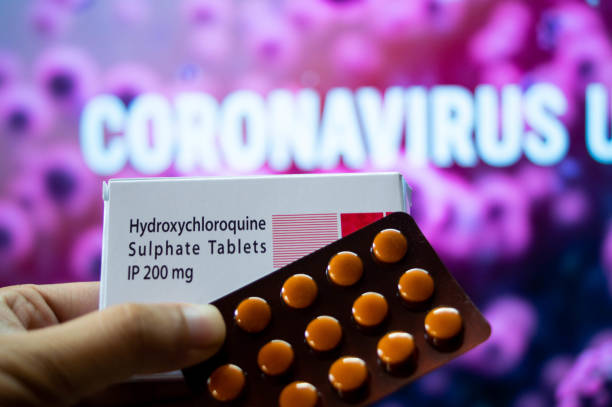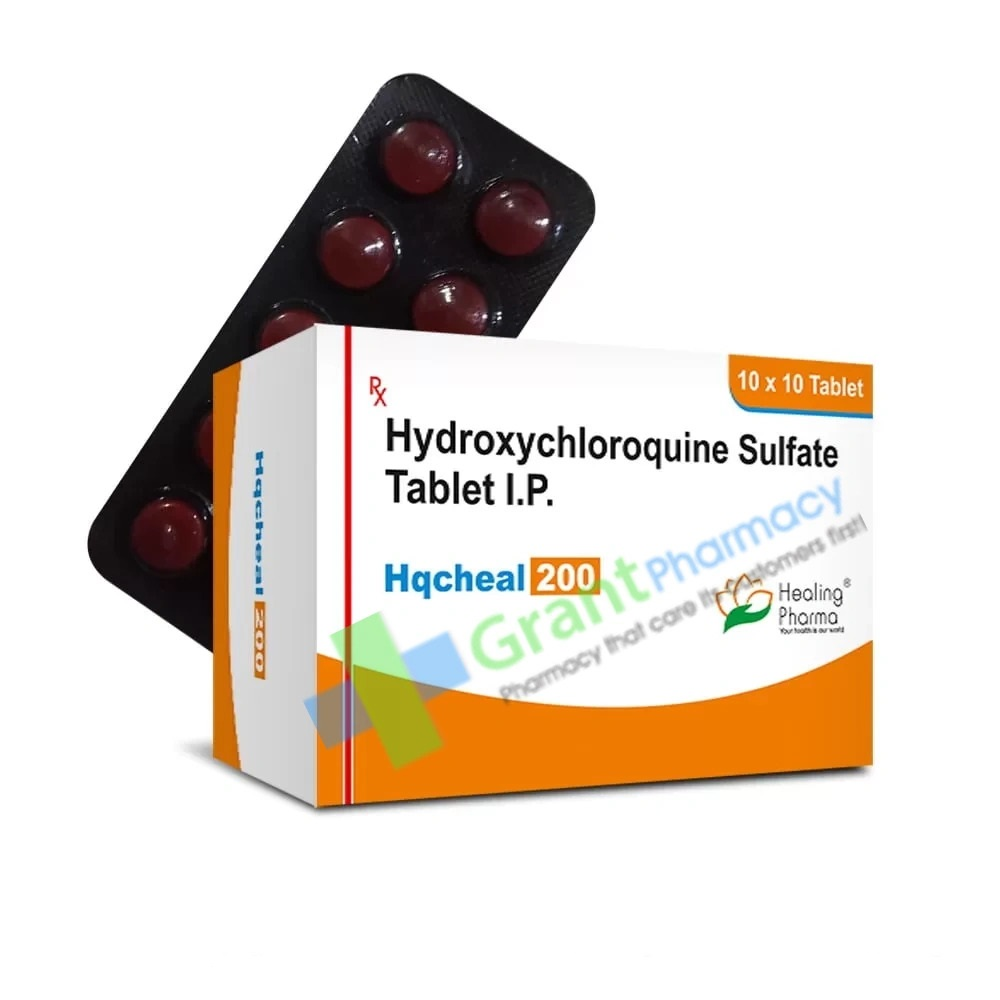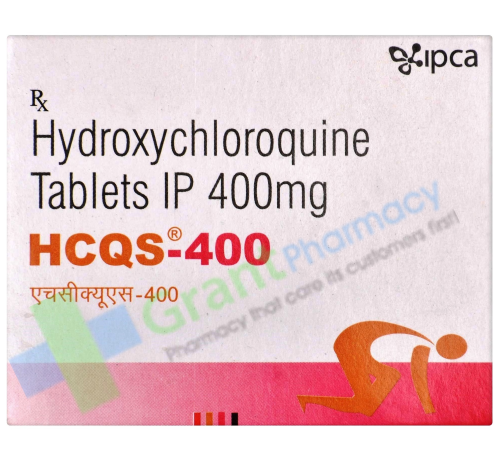







Hydroxychloroquine was initially used to treat malaria and is a standard treatment for lupus today. It is a disease-modifying anti-rheumatic drug. This medication is widely used to treat various autoimmune diseases. It is supposed to hinder the communication process of the immune system. Hydroxychloroquine is commonly prescribed to ease arthritis pain and swelling and can effectively prevent joint damage causing long-term disability.
The US FDA (Food and Drug Administration) long ago approved using Hydroxychloroquine for rheumatoid arthritis and lupus symptoms such as joint pain, fatigue, mouth sores, hair loss, and skin inflammation.
Hydroxychloroquine is an approved drug to treat and prevent malaria and autoimmune conditions including lupus and rheumatoid arthritis. This drug is obtainable under different brand names including Plaquenil. It has been also used for the treatment of Q fever, Sjogren’s syndrome, and COVID-19.
Hydroxychloroquine normalizes the immune system function that becomes overactive in certain medical conditions. This drug not only treats the associated symptoms but it can effectively amend the underlying disease process.
Hydroxychloroquine begins its activity gradually. While treating inflammatory conditions such as lupus and rheumatoid arthritis, you can notice the improvement within 6 to 12 weeks. Most patients can notice significant improvements in their symptoms in 1 or 2 months however it may take around 6 months for complete benefits.
It is extremely important to take it regularly as recommended as you may not experience any visible benefits initially, however it is likely to be active.

Generally, Hydroxychloroquine is prescribed as 6.5 mg/kg body weight daily. Hydroxychloroquine is available as a 200 mg tablet so patients may need to take 1 or 2 tablets daily depending on the disease that requires treatment. Patients who are diagnosed with lupus may be prescribed to take Hydroxychloroquine 400 mg once a day for some weeks to allow the drug to build up in the system and then 200-400 mg a day.
Hydroxychloroquine is accessible in oral tablet form. For patients with kidney problems and low body weight, it may be prescribed as one tablet every other day or half a tablet a day. If you have an upset stomach your healthcare provider may advise you to take Hydroxychloroquine pills after a meal or with milk.
The dosage for adult patients with rheumatic diseases ranges between 200 mg to 400 mg daily. In certain cases, your healthcare professional may prescribe higher doses. You can take it as a single dose daily or 2 divided doses daily as your healthcare provider suggests.
Heart rhythm problems have been reported while combining Hydroxychloroquine with other medications such as Phenytoin, Phenobarbital, or Carbamazepine.
It is not an approved treatment for COVID-19 as it is not capable of acting against the coronavirus disease that causes COVID-19. In 2020 during the peak of the coronavirus pandemic, the emergency Hydroxychloroquine use was allowed to treat patients with COVID-19.
This authorization was based on the information gathered from tests performed on the cell lines and healthcare professionals working in this domain. The concerned authorities also tracked the health condition of patients who were given this medication.
Later FDA cautioned medical professionals against the use of the medicine for the treatment of COVID-19 unless the patients are admitted to the hospital or involved in a clinical trial. The records gathered by the FDA demonstrated a higher rate of heart problems in patients taking Hydroxychloroquine than those who were not taking it.
Therefore, the FDA stopped the emergency use of this drug to treat COVID-19 patients. Over time, many clinical trials have been performed to determine the efficiency of Hydroxychloroquine in COVID-19 treatment and found that it can not treat or prevent this condition effectively.

Based on in-vitro activity and information collected from uncontrolled studies and some randomized trials, Chloroquine and Hydroxychloroquine were proposed as coronavirus disease treatment.
A randomized, controlled trial was performed to compare various possible treatments in normal care in hospitalized patients with Covid-19. During the trial, 1561 patients were randomly assigned to get Hydroxychloroquine and 3155 to get normal care. The prime outcome of this trial was 28-day mortality.
The patient enrollment was closed in the Hydroxychloroquine group after an intervening analysis found a lack of efficacy. Within 28 days of starting the treatment, 421 deaths occurred in the Hydroxychloroquine group and 790 deaths occurred in the regular care group.
Constant outcomes were noticed in all prespecified patient subgroups. The outcomes revealed that Hydroxychloroquine group patients were less likely to get discharged alive from the hospital within 28 days as compared to the normal care group of patients.
Among the patients who were not going through mechanical ventilation initially, the Hydroxychloroquine group patients had a greater frequency of death or invasive mechanical ventilation. A small numerical excess of cardiac deaths was found however no difference was found in the incidence of major cardiac arrhythmia among Hydroxychloroquine group patients.
Among the Hydroxychloroquine group (hospitalized with COVID-19) after 28 days no lower incidence of death was found as compared to the normal care group.
Discuss the benefits and possible risks of using this medication during pregnancy and while breastfeeding with your healthcare team. Most studies have not found the risk of birth defects when it was used in pregnant females.
One study found that higher doses may increase the risk of birth defects a bit. However, there was no pattern of these effects noticed to prove that these were due to the use of this drug. No other studies have observed a rise in birth defects due to the use of Hydroxychloroquine during pregnancy at any dose.
Hydroxychloroquine passes into the breast milk in small amounts. Some small studies performed with Hydroxychloroquine while breastfeeding have not reported any harmful effects on nursing babies. it includes no records of hearing, vision problems, or growth problems in babies who were tracked up

Comprehensive effects of Hydroxychloroquine discovered several benefits in the treatment of autoimmune diseases. Patients who smoke or consume alcohol may not get the best of this medication.
The benefits that make it a preferred choice for lupus are:
Reduced number of flare-ups
Lesser damage due to disease over time
Efficiency to delay ultraviolet light absorption.
Reduced number of antigen-presenting cells in the skin.
A systematic review of Rheumatic diseases found:
Reduced lupus activity in pregnant females without causing harm to the fetus.
Prevent disease flare-up
Improved disease control and long-term survival
Generally, Hydroxychloroquine is well tolerated by most patients. It successfully improves arthritis and lupus-associated symptoms and enhances the life quality of sufferers. You may notice significant improvements after several weeks. This is a prescription on medicine so make sure you take it under the supervision of a healthcare provider. Take the prescribed dose correctly to get the maximum benefits of this medication and avoid the likelihood of side effects.
Visual problems are extremely rare if you are taking a safe dose of this drug. Inform your eye doctor while taking Hydroxychloroquine, they may ask you for regular visual screening tests. You should go for an eye exam and get your eyes examined within the first year of treatment and once a year when using this medicine for more than five years.
Some patients may experience mild side effects such as nausea, diarrhea, and gastrointestinal problems which get better over time. Severe side effects of this drug are rare.
WHO does not advise taking Hydroxychloroquine to treat or prevent COVID-19.



